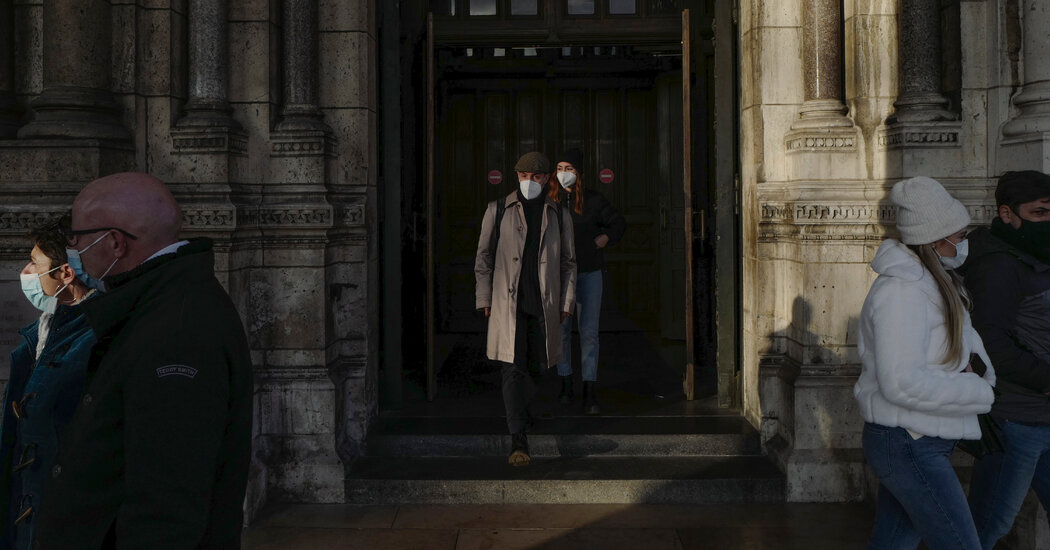Joan Chen bought her first style of fame as the teenager star of “Little Flower” (or “Xiao hua”), a melodramatic conflict epic launched in her native China eight years earlier than her large worldwide breakout in Bernardo Bertolucci’s “The Last Emperor,” a 1987 Columbia Footage launch that gained 9 Oscars, together with finest image. Chinese language followers nonetheless come as much as her to gush in regards to the earlier movie. “I was being mobbed on the street, and every family had a calendar with my face on it,” she says of the movie’s reception in China when she was simply 18.
However for a few years, she and her mother and father noticed performing as a brief job, one thing to do till she landed on her actual vocation.
Solely years after transferring to the U.S. to discover a profession did Chen notice she already had one.
That profession has been treating her properly these days, due to a sequence of roles juicier than most she has encountered as a performer. In “Didi,” Sean Wang’s biting coming-of-age drama about an angst-ridden Bay Space adolescent (Izaac Wang) discovering his means, she performs Chungsing, a mom making an attempt to stability parenting duties along with her goals of portray. She performed an AI tech titan within the 2023 FX sequence “A Murder at the End of the World.” Quickly she’ll star in a reimagining of the 1993 Ang Lee rom-com “The Wedding Banquet,” and, alongside Michelle Pfeiffer, in Michael Showalter’s Christmas comedy “Oh. What. Fun.”
“This mother is playful, artistic, gentle, confused, unsure and loving. Under-appreciated. Those are the authentic mothers that I know,” says Joan Chen of her character in “Didi,” with Izaac Wang and Chang Li Hua.
(Courtesy of Focus Options / Tal/Courtesy of Focus Options / Tal)
“I don’t think I’ve had as busy a year in North America for a very, very long time,” she says in a latest interview, poised and quietly glamorous in a chic grey turtleneck sweater.
Chen was significantly drawn to “Didi,” and the chance to play a well-rounded variation of a personality she is aware of properly. “I don’t think I’ve seen many Asian mothers like this on screen, and yet I have known them in life,” says Chen, whose two daughters are 22 and 26. “They are not the typical tiger moms or strict matriarchs, like in ‘Crazy Rich Asians’ or ‘The Joy Luck Club.’ This mother is playful, artistic, gentle, confused, unsure and loving. Under-appreciated. Those are the authentic mothers that I know.”
She knew she had one thing particular when she confirmed the script to her daughters. “They are usually very critical,” she says. “But they both loved it.” The jury of two was particularly impressed with the authenticity of the teenager dialogue: “I wasn’t so sure about the conversation because I didn’t grow up here. And they could relate to the teen shenanigans as well.”
Chen moved from China to California when she was 20. Finding out communications at Cal State Northridge, she began choosing up small elements in sequence reminiscent of “Miami Vice” and “Knight Rider.” However even after “The Last Emperor,” she was making an attempt to determine what she was actually purported to be doing along with her life. “I was taking classes in astronomy and anthropology,” she says.
A profession in faith additionally appeared like a risk. She would go make a film, wait a number of months for a name to shoot the subsequent one, develop disillusioned along with her performing profession after which, inevitably, get that subsequent name. Bouncing from one area of examine to a different, she was virtually 30 when she graduated.
Lastly, she realized that possibly she ought to simply be an actor.


“For so long, I wanted to see if I could have a real profession other than acting,” she says. “But looking back, I know this was my destiny. I think it’s important to know your destiny, but we usually don’t know until much later in life. We struggle, we fight against it. And we experience so much anxiety trying to find ourselves when our true selves are staring us in the face all that time.”
For a lot of Chen’s early profession in Hollywood she was solid in generic Asian roles — assume “On Deadly Ground” with Steven Seagal, or “Judge Dredd” with Sylvester Stallone. However extra rewarding work has been there as properly. She labored, as an example, with David Lynch on “Twin Peaks,” and Ang Lee on “Lust, Caution.” She has all the time managed to carve out a spot.

At present, she sees higher alternatives for Asian actors looking for extra significant work. Between such sequence as “Shōgun” and the upcoming “Interior Chinatown” (a meta take a look at Asian stereotypes in leisure), and films like “Didi” and “Everything Everywhere All at Once,” she believes the tide is slowly shifting.
“There is more visibility in social media, and in films and television,” she says. “There’s a little more representation, a little more exposure. Meaningful parts for Asians in Hollywood were basically nonexistent when I first moved here. Even after ‘The Last Emperor’ won nine Oscars, I didn’t get many calls for work. People didn’t know how to use you. It’s much, much better now.
“I’m so happy that I didn’t quit and that I’m still here.”




